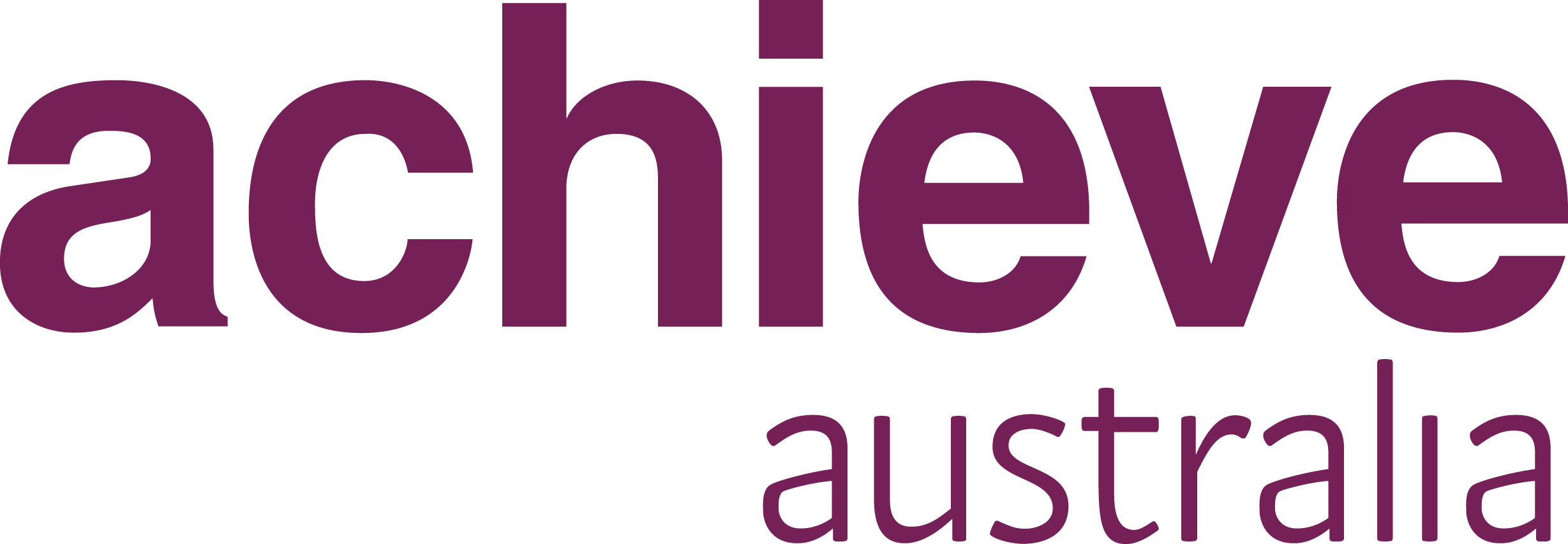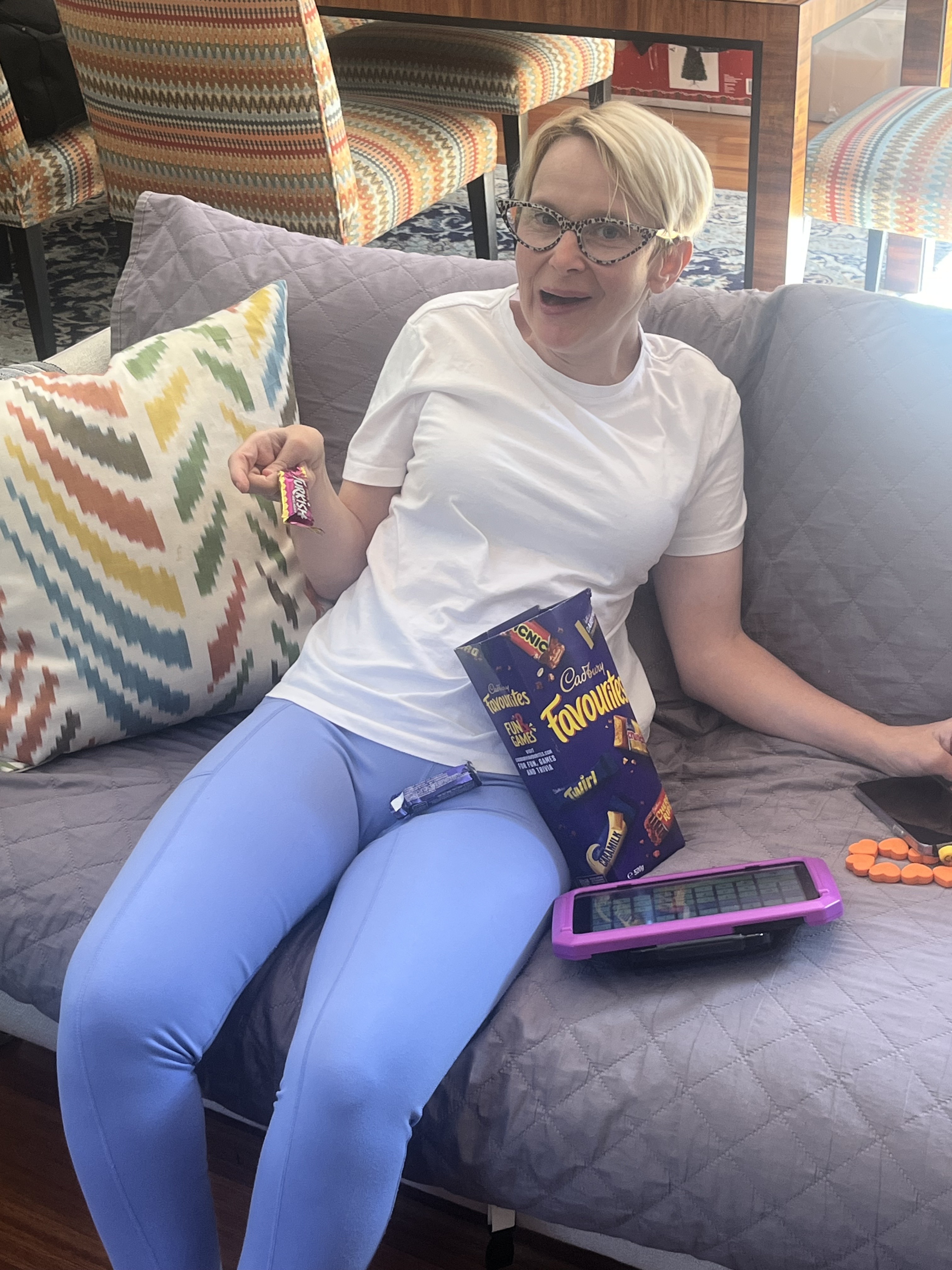By Fiona Bridger, Achieve Australia Researcher and Writer
20 December 2024
Carving out time to relax and recharge, whether physically, mentally, or emotionally is a ‘must do’ activity in today’s busy world. Even though self-care looks different for everyone, its purpose remains the same - to reduce stress and improve well-being.
However, for people with disabilities (PWD), it can come with its own set of unique challenges. These challenges can include requiring support from others which adds a layer of complexity. Still, self-care is essential, and finding ways to nurture ourselves is a priority.
And, for this post, I have reached out to Katie Kelly OAM PLY, one of the board members of Achieve Australia. Katie Kelly is a two-time Paralympian, dual World Champion, and a passionate advocate for people with disabilities and the LGBTQIA+ community. She made history as the first Australian to win a gold medal in Para-triathlon. Katie secured her world titles at the 2015 Chicago and 2017 Rotterdam World Championships before retiring from high-performance sports following the Tokyo 2020 Paralympics. She has also just been inducted into the AusTriathlon Hall of Fame.
In 2017, Katie founded the Sport Access Foundation, an organisation dedicated to providing grants for young Australians with disabilities to enhance their access to sports. To date, the Foundation has awarded over $86,000 in grants, making a meaningful impact in fostering inclusivity and opportunity.
Self-care is vital for everyone. “The benefits of physical activity for brain health and longevity are well known”, Katie Kelly says.
A matter of focus
In my own experience, self-care can feel a little complicated. While I also need help with some of my day-to-day tasks, it’s crucial to prioritise moments for myself.
Sometimes, my family believe my primary focus should be on giving my mother, my main carer, a break. And while caregivers need support, people with disabilities equally need their downtime. Self-care for people with disabilities can be physical, emotional, social, mental, spiritual, and practical, offering us a path to a fuller, more balanced life.
Physical self-care
Physical self-care is all about movement, exercise and rest. Activities like gentle yoga, dancing, or even exercises tailored to my needs in a specialised gym can be transformative. They keep me active, help me feel my best, and allow me to push my own boundaries safely.
Katie Kelly suggests, “Getting enough sleep also plays a huge role in physical self-care, so establishing a calming bedtime routine is essential for a good night’s rest. Also, I have a real focus on connecting with close friends, family members, neighbours or gym buddy for regular catchups. “
Physical activity is essential for physical and mental health. It also improves general well-being. Katie Kelly says, “For people with disability the access to activity and facilities has impacted the opportunity to maintain our physical activity. That’s why I set up Sport Access Foundation to provide grants to improve access for young Australians to sport that have disability”
So let’s get out there and aim for a minimum of 30 minutes a day!
Let’s not forget celebrations and travel. I love gatherings and will regularly plan trips or events.
Emotional self-care
Emotional self-care includes mindfulness, journaling, and finding support. Practicing mindfulness can be as simple as using an app like ‘Calm’ to help manage stress. Journaling my thoughts and emotions can also bring me clarity and peace. Emotional well-being is about finding people and activities that help me feel supported and letting go of any negativities.
Social Self-Care is another way to feel supported and connected. Spending time with friends and family or finding communities with shared interests can bring immense comfort and joy. Setting boundaries is also a key. It’s okay to say ‘no’ when I need time for myself. A balance of nurturing relationships and personal time can bring out the best of both worlds.
Mental self-care
Mental self-care encourages me to engage in things I love like reading or taking on new hobbies. Learning something new or challenging myself mentally keeps me sharp and gives me a sense of accomplishment.
In today’s information-heavy world, I also try to limit unnecessary information, so I’m not overwhelmed by things that don’t serve my well-being.
In today’s overloaded world of social media, constant phone and other devices, Katie Kelly recommends “avoid looking at your phone for as long as you can, avoid any messages or Socials, until well after you have done your morning routine of self-care. For me it’s usually after I have finished my morning's exercise and activity, Then I am ready to switch on.”
Great advice. Thanks Katie.
Spiritual Self-Care
Spiritual self-care gives me a sense of purpose and connection. Whether it’s reflecting on my values, practicing gratitude, or spending time outdoors, spiritual self-care brings me balance. It allows me to connect to what feels most meaningful in life.
Practical Self-Care
Practical self-care includes organising my environment and creating routines that make my day feel more manageable. Having a routine and sticking to it can make even the busiest days feel structured and calm.
I also set aside time for relaxation—it’s a scheduled appointment with myself!
My self-care practice
Sometimes, I need extra support, and seeking professional help is always an option. Talking to a therapist can provide valuable tools and insights, especially if I feel overwhelmed.
Self-care, in all its forms, is about finding ways to keep myself well, happy, and ready to face life’s challenges. Taking care of myself is not only for my benefit, but it also lets me be the best version of myself for those around me. And while my version of self-care may look different, I know I deserve it, just like anyone else.
So, how do I practice self-care? By making time for my needs, finding the right support, and allowing myself moments to recharge. It’s not always easy, but self-care is worth every bit of effort, leading to a more fulfilled and balanced life.
As a person with a disability, self-care does not involve things like going for a facial or meditation. My perfect self-care day is having downtime, having a pj’s day to stay in my pj’s all day and binge-watch romcoms like ‘Sex in the City’, ‘How to Lose a Guy in Ten Days’ and ‘Beaches’. I love spending time with my dog Oliver, taking him for walks, and watching him chase the ball. I also like to have massages to relax my body from day-to-day stress.
I hope you remember to practice self-care. Even a little chocolate can help!
Explore more topics
- Accessibility
- Achieve Australia
- inclusion
- disability
- belonging
- Community
- Employment
- Advocacy
- The Sewing Basket
- Accessible
- disability employment
- My Life My Say
- Celebrating people we support
- NDIS
- 2022
- Guildford
- Meet our Achievers
- blog
- people with disability
- travel
- women with disability
- Art
- Australia
- COVID-19
- Disability services
- Good nutrition
- Health tips
- Mental wellbeing
- NDS
- Sharing milestones
- Sydney
- achievable
- assistance dogs
- depression
- disability communications
- disability inclusion
- election
- employee of the year
- intellectual disability
- motherhood
- pregnancy
- social inclusion
- support workers

